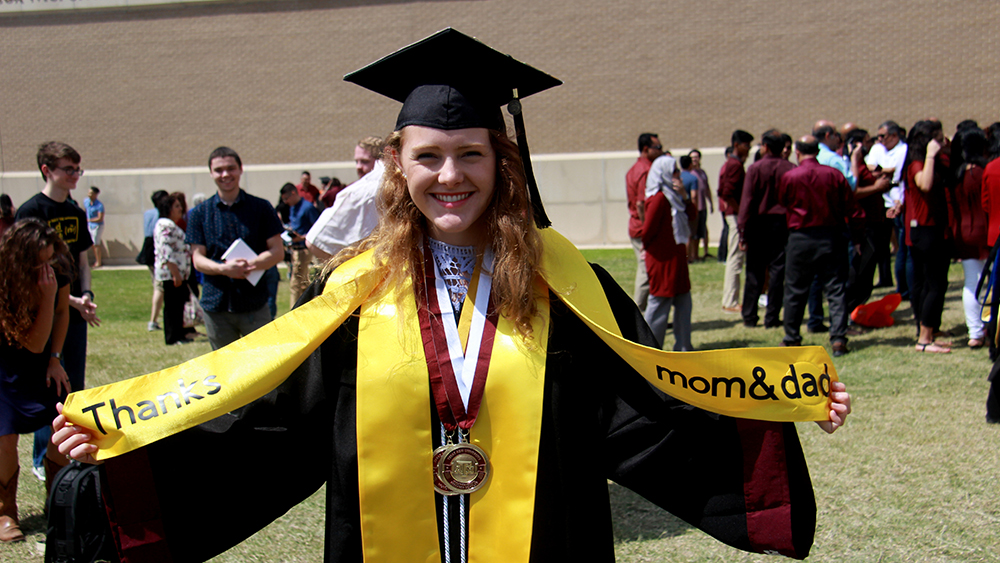
Stephanie Wilcox didn’t just see her engineering degree as a means to one day attain financial freedom and job security. She saw it as a catalyst to affect real change in the world. Now, as a recent Texas A&M University graduate with an electrical engineering degree, she’s interning at the Johns Hopkins University Applied Physics Laboratory and will travel to China later this year on a Fulbright award to pursue research.
Wilcox’s focus isn’t in computing and electrical systems. Instead, she wants to study how the human brain functions and interacts with medical technology. Through the Grand Challenge Scholars Program at Texas A&M University, Wilcox got to roll up her sleeves and start researching before she even graduated. The three-year program allows engineering students to conduct research based on one of the 14 Grand Challenges for Engineering in the 21st Century, outlined by the National Academy of Engineering. These grand challenges, identified by a team of global technological thinkers as a call to action, range from sustainability initiatives to human health improvements and cybersecurity.
“The whole world is trying to solve these issues, and this was a way I could contribute,” she said. “My research was about using optoelectronics to gain insight into the brain.”
Wilcox’s inspiration for this type of research started at a young age. Since third grade, she has watched her best friend struggle with an autoimmune disorder. Later, Wilcox began reading non-fiction books about mental health disorders and brain function. From there, she was hooked. She wanted to understand how the brain worked, and how reverse-engineering the brain could benefit people around the world with a wide range of health issues.
“I began to see, and continue to see, the impact of medical progress through technology,” she said. “The innovation and excitement of engineering impacted me because I saw its effects so directly.”
Wilcox also participated in other research projects throughout her undergraduate career at Texas A&M. Through the Undergraduate Summer Research Grant, she utilized microfluidics to analyze microalgal response to various temperatures for microalgal biofuel under the direction of Dr. Arum Han, professor in the Department of Biomedical Engineering and Electrical Engineering. She also did research through the AggiE_Challenge program, to develop a 3D bioprinted cancer mimicking model. In another research course, she studied the design and development of children’s engineering toys.
Wilcox was a member of Engineering Honors and the Texas A&M chapter of the Institute of Electrical and Electronics Engineers for which she served as chair of their annual hackathon, TAMUmake.
In August, Wilcox will leave the Johns Hopkins University Applied Physics Laboratory and head to China for three months of language classes before arriving at her research post — the Dalian University of Technology in east China on the Yellow Sea.
“I applied for a Fulbright because I want to eventually work internationally,” she said. “This experience will give me exposure to the skills that will be applicable.”
As an engineering student, Wilcox studied abroad at Texas A&M’s campus in Qatar as well as in Mexico. While abroad, Wilcox got to see firsthand the power of the Aggie network.
“I really wanted to go to Istanbul,” she said. “So I used the Aggie network to find someone who was in Istanbul and I connected with them. The connection permitted me to travel and see the city with the company of a local.”
Wilcox said the Aggie network provides a unique community that students and graduates of other universities may not have.
In the end, her personal drive and passion for research, combined with her experiences as an Aggie, have paved the way for her future.